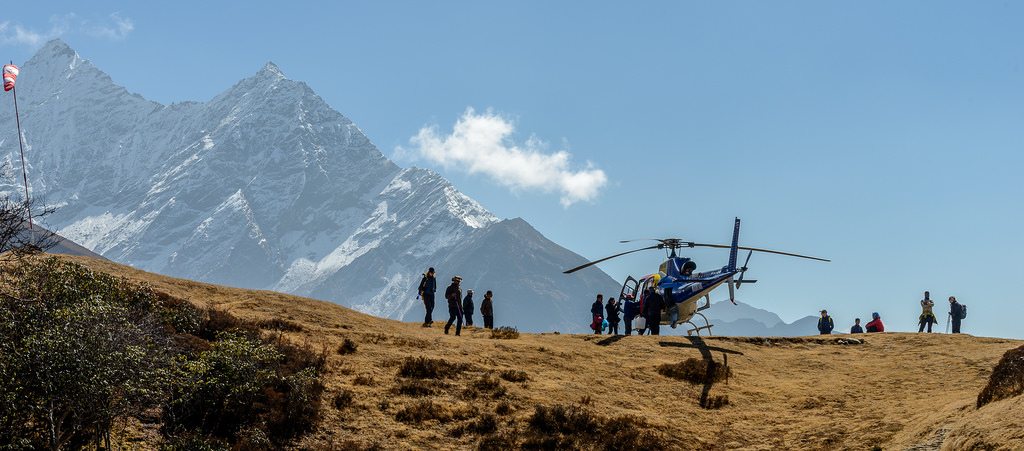There are a lot of things that can happen when hiking. Most of the time, a blister and a scraped knee should be the least of your worries. Despite the fact that people have easier methods of getting help or dealing with dangers on the trail, it seems like every time we read the news, someone has sadly lost their life while backpacking. This past week, a mother lost her life at Horsetail Falls, as she tried to save her son who fell off the edge of a cliff. Although he survived, this unfortunate event should remind us of safety precautions we should always take on the trail, regardless of how obvious they may be.
1. Touch Base with Friends and Family
Before you go hiking anywhere, make sure that you tell someone where you’re going. Please. Additionally, make sure you have a means of getting in touch with people in case of an emergency on the trail. Whether it be flares or a cell phone, don’t leave it at home. Nowadays, there are many ways to access help from even the most isolated locations. Remember, packing lightweight is useless if it involves leaving something at home that could potentially save your life.
2. Don’t Take Selfies in Questionable Areas
This is not being facetious. More people have died last year from taking selfies than shark attacks. That’s insane. If you recall, a woman almost lost her life in Yellowstone this year for trying to take a selfie with a bison. People have fallen off of rocks by trying to get that awesome Instagram photo, even if it someone else was taking it of them. It’s NOT WORTH IT. Save your life, #latergram, and be smart with your photography.

3. Drink Lots of Water
Do not wait until you’re thirsty to drink water. By then, it’s too late. A person is not likely to survive more than three days without water, especially in extreme temperatures. Though there have been cases of people surviving longer than this, I can assure you it’s not something you’ll want to try and break a world record for. A hiker should drink about 4 liters of water a day. Don’t let a simple lack of re-hydrating kill you. Water is serious business.
4. Don’t Walk Near the Edge
It’s so unfortunate we have to hear stories of people losing their life by falling. Do not let yourself or your loved ones walk anywhere near the edge of a cliff. Imagine it has that yellow line that the NYC subway system has, and stand back three times that amount. It’s a terrifying thing to even have to think about, but it happens more often than we’d like to see. Sure, looking at the scenery is beautiful, but please admire it from a distance.

5. Don’t Joke Around
Don’t ever pretend to push your friends off a cliff, jump over a rock when you don’t know what’s behind it, body surf in dangerous waves, or dare your friends to outrun a bear. Though most people know very well to leave the jokes at home, some people don’t know when to be serious, and it has unfortunately resulted in their own death or a death of a loved one. Too many people think they are just trying to be funny, until safety fails and something horrible happens. *Hint: Don’t take the sarcastic friend hiking on a dangerous hike.*
6. Follow the Signs
Government agencies have gone through a lot of effort to mark trails and place signs solely for your safety on the trail. Whether these signs tell you which way a trail leads, that you should look out for falling rocks, or that you’ve stepped into bear country, they are not to be taken lightly. Those signs are there for a reason, and a good one at that. While you shouldn’t be scared by every little thing, just pay attention to your surroundings; another safety reminder in itself.

7. Don’t Think You’re Invincible
While it’s great that people want to take on challenges and set goals for themselves, you should know your limits and take baby steps. Many people lose their lives thinking they can take on Mother Nature, when they just can’t. They are not invincible. There are some things, no matter how strong you think you are, that can’t be faced. Last week, a woman died on her descent from Mt. Everest. Though the details of her death aren’t entirely clear, it’s believed the the cause was altitude sickness; something that we unfortunately have no control over.
8. Don’t Underestimate the Weather
Similar to altitude sickness, the weather is also something we can’t always face. We are lucky enough to live in a time where weather predictions are fairly accurate. While some people handle certain kinds of weather better than others, don’t ever think, “it’s so freezing, but I’ll be okay!” or, “there’s a heat wave, but it doesn’t bother me!” It might not bother you now, but it wouldn’t be good to find out the hard way that it does.
Don’t forget the most basic safety tips while on the trail. It could save your life.








